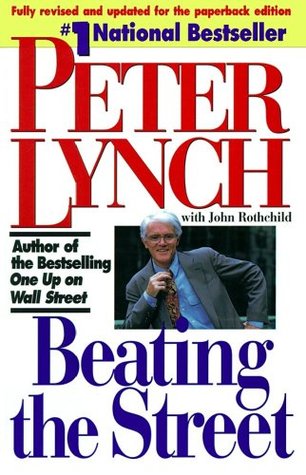More on this book
Community
Kindle Notes & Highlights
Ms. Morrissey. “But before my students can put any stock in the portfolio, they have to explain exactly what the company does. If they can’t tell the class the service it provides or the products it makes, then they aren’t allowed to buy. Buying what you know about is one of our themes.”
Warren Buffett’s admonition that people who can’t tolerate seeing their stocks lose 50 percent of their value shouldn’t own stocks also applies to stock funds.
The extravagance of any corporate office is directly proportional to management’s reluctance to reward the shareholders.
By abandoning these great companies for lesser issues, I became a victim of the all-too-common practice of “pulling out the flowers and watering the weeds,” one of my favorite expressions.
When yields on long-term government bonds exceed the dividend yield of the S&P 500 by 6 percent or more, sell your stocks and buy bonds.
In stocks as in romance, ease of divorce is not a sound basis for commitment. If you’ve chosen wisely to begin with, you won’t want a divorce. And if you haven’t, you’re in a mess no matter what. All the liquidity in the world isn’t going to save you from pain, suffering, and probably a loss of money.
The best stock to buy may be the one you already own.
When insiders are buying, it’s a good sign—unless they happen to be New England bankers.
As Yogi Berra once said about a famous Miami Beach restaurant, “It’s so popular, nobody goes there anymore.”
In business, competition is never as healthy as total domination.
Unless you’re a short seller or a poet looking for a wealthy spouse, it never pays to be pessimistic.
Corporations, like people, change their names for one of two reasons: either they’ve gotten married, or they’ve been involved in some fiasco that they hope the public will forget.
The difference between a troubled nuke and an opera is that the troubled nuke is more likely to have a happy ending.
For a restaurant company to break even, the sales have to equal the amount of capital invested in the operation. You follow a restaurant story the same way you follow a retailer.
Never invest in a company without understanding its finances. The biggest losses in stocks come from companies with poor balance sheets. Always look at the balance sheet to see if a company is solvent before you risk your money on it.
Avoid hot stocks in hot industries. Great companies in cold, nongrowth industries are consistent big winners.
Everyone has the brainpower to make money in stocks. Not everyone has the stomach. If you are susceptible to selling everything in a panic, you ought to avoid stocks and stock mutual funds altogether.
Nobody can predict interest rates, the future direction of the economy, or the stock market. Dismiss all such forecasts and concentrate on what’s actually happening to the companies in which you’ve invested.


